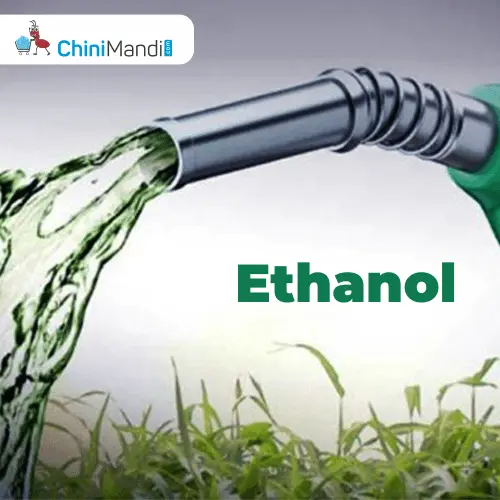New Delhi: The Grain Ethanol Manufacturers Association (GEMA), representing various Grain Ethanol Manufacturers in India, has approached Prime Minister Narendra Modi and Petroleum Minister Hardeep Singh Puri, urging a swift directive to oil-marketing companies (OMCs) to increase the procurement price for ethanol produced from damaged foodgrain (DFG) and maize. The requested prices are Rs 69.54 per litre and Rs 76.8 per litre for the Ethanol Supply Year (ESY) 2023–24, which commenced in November. This move aims to ensure the sustainability of a consistent ethanol supply.
In a letter sent to them, GEMA said, “MOPNG/OMCs should be advised to review the grain ethanol price based on the current open market landed cost of feedstock (DFG & Maize) and a fair & remunerative price be given for grain ethanol so as to ensure viability and consistent supplies during ESY ’23-24 by fixing the per liter price at Rs. 69.54 for DFG and at Rs. 76.80 for Maize (as against announced Rs.64 for DFG & Rs.66.07 for maize).”
“We all manufacturers have invested our time, effort, and resources to make our Govt’s ambitious E-20 EBPP a grand success by 2025. We all members have already collectively invested Rs.15,000+ crores by now, which will correspondingly increase to Rs.30,000+ crores by 2025 with a production capacity of 370+ crore liters now to 650+ crore litres by 2025, respectively. All our efforts and investments in manufacturing ethanol through the grain route are predominantly dependent upon continuous supply of damaged food grains and maize from the open market after the discontinuation of surplus FCI rice on a fixed price.” GEMA stated in the letter.
According to the GEMA, the published data of OMCs shows that the grain ethanol industry has offered 290 crore litres of ethanol in ESY ’23-24, out of which 54% is being supplied from DFG (broken rice) and 15% from SFCI’s rice and 31% from maize. This indicates the huge participation of the grain ethanol industry in GOI’s EBPP. This is because of the fact that dedicated grain-based ethanol plants are compelled to supply even though the procurement price announced by OMCs is not conducive to the prevalent high price of DFG and Maize in the market.
In a letter, GEMA made the following suggestions:
i) GEMA would like to highlight that sugarcane-based ethanol can be procured at the fixed price for the entire year because sugarcane price is fixed by the GOI once for the whole year, whereas grain prices vary on an hour-to-hour & day-to-day basis depending upon its availability vis-a-vis demand & supply position. Hence, grain ethanol pricing needs a revision based on the current as well as forecasts for the year, which is not being presently considered by MOPNG/OMCs while announcing the price. This eventuality happened last year because of surplus FCI rice supply was withdrawn, which was supplied to the ethanol industry on a highly subsidized fixed price resulting in low costing.
ii) In order to support the GOI for making its E-20 EBPP successful, all our members have participated in the tender by committing their full supplies based on good faith & understanding (like last year) as under:
a) That, MOPNG/OMCs would review the grain ethanol pricing and issue the viable pricing (based on open market procurement landed cost) ASAP for the current ESY ’23-24.
b) That, we appreciate the initiative of GOI to insert NAFED & NCCF in the supply chain of Maize to the grain ethanol industry to ensure a fair price mechanism. Accordingly, the GEMA has made its efforts to provide them with all requisite information and have meetings with them to religiously make this scheme go through in the best interest of all.
iii) That, our industry has offered their fullest supplies in the present ESY ’23-24 tender, which is approx. three times more than it supplied during last year, expecting that they are partnering with GOI & contributing to the dream project of your good self by having protected grain DEPs to sustain the future development of Bharat as per Bio-Fuel Policy for being self-sufficient in its Energy needs.












